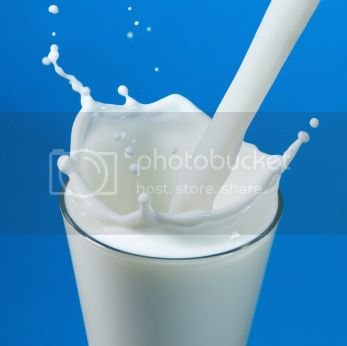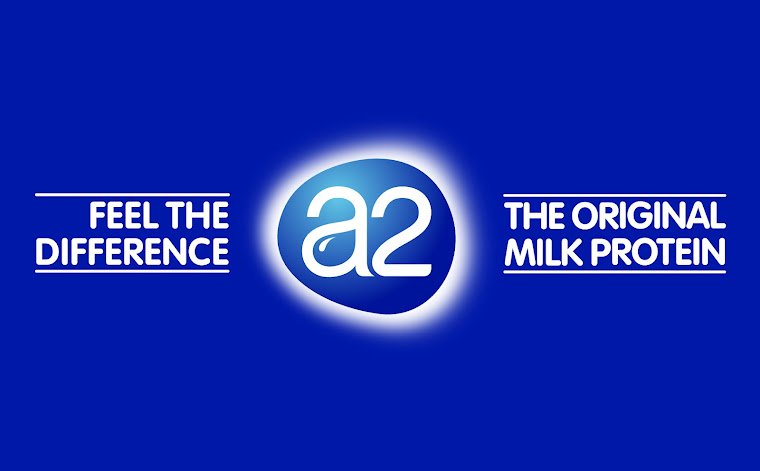*The interesting thing is that the a2 protein is in fact the original form of beta-casein produced by cows thousands of years ago.

So what is A2?
Cow’s milk contains protein. The primary group of milk proteins are the caseins. A1 and A2 are the two primary types of beta-casein (beta-casein is one of the three major casein proteins) present in milk. They are simply genetic variants of one another that differ in structure by one amino acid.
A2 beta –casein protein is recognised as being the original beta-casein protein in cows. That is, originally all domesticated cows produced milk containing only the A2 protein.
However, owing to a natural genetic mutation, another milk protein (A1 beta-casein protein) appeared in Europe and spread throughout global herds via modern farming practises.
The two most common forms of beta-casein are:
- A1 beta-casein: Milk from breeds of cows that originated in northern Europe is generally high in A1 beta-casein. A1 milk comes from breeds like the Holstein, Friesian, Ayrshire and British Shorthorn.
- A2 beta-casein: Milk that is high in A2 beta-casein is mainly found in breeds that originated in the Channel Islands and Southern France. This includes breeds like the Guernsey, Jersey, Charolais and Limousin.
Regular milk contains both A1 and A2 beta-casein, but A2 milk contains only A2 beta-casein.
A Short History;
Founded in 2000 by New Zealand scientist Corran McLachlan and multimillionaire farm owner Howard Paterson.
Following a very significant and amazing discovery: cows naturally produce different types of milk proteins and these proteins affect people differently.
a2 Milk's market value has more than tripled to $NZ1.2 billion over the past year. It entered Britain in 2012 and expanded into the US last year.
Many consumers and health care professionals report that, when people experience discomfort drinking ordinary cows’ milk, they may experience relief when they switch to a2 Milk.
Dr Alex Richardson, Senior Research Fellow, Oxford University, UK said this;
“In my experience, many people who don’t have classic allergic reactions to cows’ milk protein nonetheless react badly to ordinary A1 cows’ milk (and products made from this), but can happily consume A2 milk without experiencing any of the same problems. Sensitivity to the opioid peptide BCM-7, which is produced from A1 but not A2 milk, could help to explain why this is so.
We still need much more research to find out which groups or individuals are sensitive to BCM-7. The evidence suggests that this kind of intolerance to standard A1 cows’ milk could affect as many as 25% of the general population in the UK, Australia and New Zealand”.
Over time, the a1 type of protein began to appear in dairy cows due to a naturally occurring genetic mutation and eventually became one of the most common beta-casein forms in many Australian dairy cows. So, with the exception of a2 Milk, all regular cows’ milk brands sold in Australia today contain a combination of the a1 and a2 proteins. On the other hand, a2 Milk cows are tested and if they have the genes to naturally produce only the a2 protein and not the a1, then they go into special a2 Milk herds. Rest assured that none of these processes involve genetic modification – this is simply gene testing and breeding of a2 producing cattle.
Summary;
a2 Milk's market value has more than tripled to $NZ1.2 billion over the past year. It entered Britain in 2012 and expanded into the US last year.
"In Australia, a2 has become mainstream," said Oyvinn Rimer, a research analyst at Harbour Asset Management in Wellington, which holds just under 5 per cent of a2 Milk stock."Very sophisticated consumers are buying into this product. They believe it's better for them, and they're willing to pay more for it." A2 Milk has outstripped sales of organic milk in Australia, said Michael Harvey, a senior dairy analyst with Rabobank International in Melbourne. Its expansion has been particularly remarkable given the competitive response from established dairy companies, he said.
Rival companies have looked for ways to slow a2 Milk's growth, said Geoff Babidge, the company's managing director since 2010. "Clearly, in our experience, that has not been successful," he said in an interview on January 22.
A2 Milk has championed research into A1's purported deleterious effects and promoted the idea that people who drink the company's milk "just feel better". It says a quarter of consumers in Western countries report some kind of discomfort after drinking regular milk, citing a 2010 paper from the Innovation Centre for US Dairy, an industry research group.
That's made China a particularly attractive market for a2 Platinum, the infant formula brand whose first-half sales rocketed 340 per cent to $NZ73.9 million. Managing director Babidge is also targeting the US, which he said could overtake Australia as the company's biggest market in as little as four years.
More info;
https://drjoanna.com.au/blog/a1-vs-a2-milk-blog-383/

good for health...
This still has quite a bit of copied material from other sites. The idea is to write your own thoughts and comments and be sure to use the quote function for copied material.
Then use a couple of small quotes from your source:
Ideally, your contribution to the topic would be more than the source your sharing.